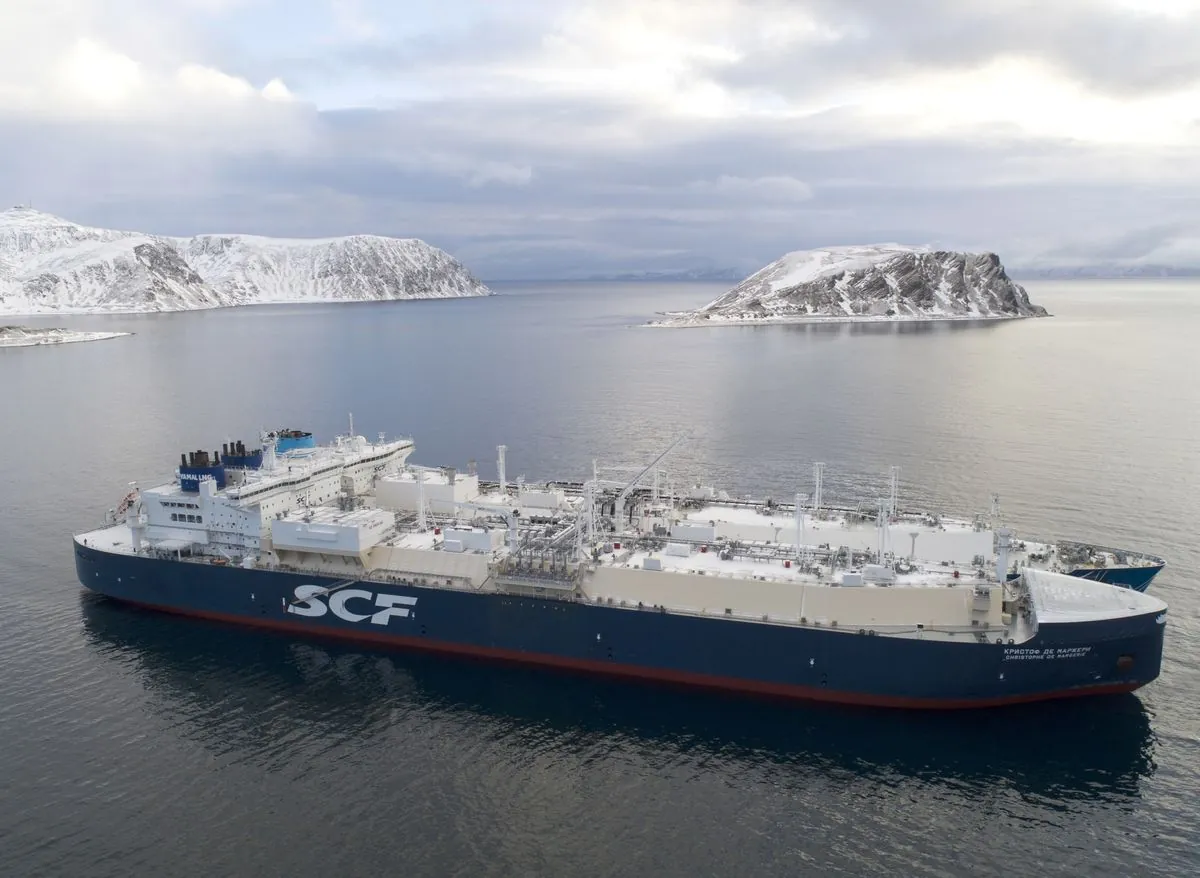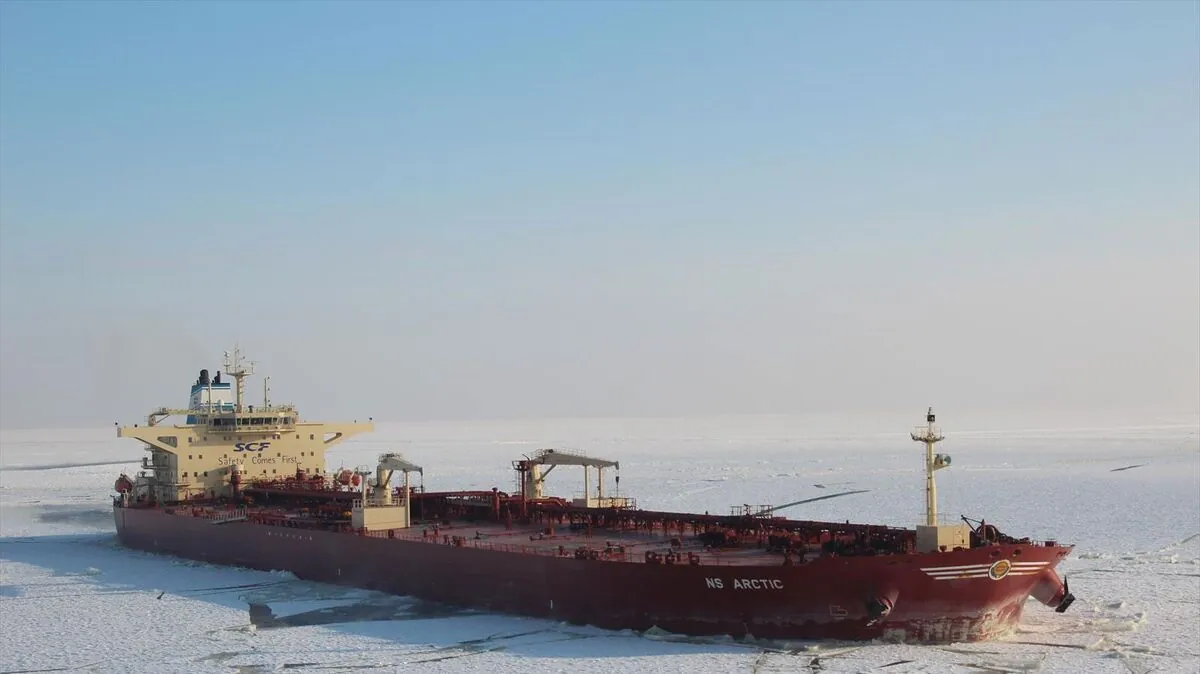Azerbaijan-Managed Oil Tanker Pioneers Northern Sea Route to China
An Azerbaijan-managed oil tanker becomes the first non-Russian vessel to navigate the Northern Sea Route to China. This development challenges Russia's dominance in Arctic shipping, despite higher costs compared to the Suez Canal route.

In a significant development for Arctic shipping, an oil tanker managed by an Azerbaijan-based firm has embarked on a journey along the Northern Sea Route (NSR) to China, marking the first time a non-Russian vessel has utilized this path. This event challenges the dominance of Sovcomflot, Russia's shipping giant, in Arctic waters.
The vessel, named Prisma, is managed by Vista Vvave Shipmanagement, a private company based in Azerbaijan. It loaded crude oil at Russia's Baltic Primorsk port and is currently traversing the Kara Sea. The Prisma, nearly two decades old, possesses an ICE 1C class rating, allowing it to navigate the NSR with icebreaker assistance.

The NSR, spanning approximately 4,800 kilometers along Russia's Arctic coast, has been a focus of Russian efforts to increase maritime traffic. This route, which runs from Murmansk near the Norwegian border to the Bering Strait near Alaska, is seen as a potential competitor to the Suez Canal. Despite being significantly shorter for journeys between western Russian ports and Asia, the NSR presents unique challenges and requires specialized icebreaker support.
In 2024, six oil tankers carrying around 600,000 metric tons of Russian crude oil have opted for the NSR to reach Chinese ports. These vessels, including the Olympiysky Prospect, NS Arctic, SCF Baltica, Moskovsky Prospect, Zaliv Amerika, and Galaxy, are all managed by the Sovcomflot Group. The NSR is typically navigable between July and October when Arctic ice thins.
While traders anticipate increased crude oil shipments via the NSR this year, the route's economic viability remains questionable. Navigation costs along the NSR currently exceed those of the Suez Canal route, making China the only economically feasible destination. A source in the Russian oil market stated, "I'd rather spend more time en route and pay less than use the NSR, for which you have to receive specific approvals and pay for an ice-breaker service."
The development of the NSR aligns with Russia's broader Arctic strategy. Since 2013, the country has operated the Northern Sea Route Administration to manage the route. Additionally, Russia has been investing in a fleet of nuclear-powered icebreakers to support NSR operations, with some of these vessels costing up to $1 billion to construct.
The NSR's potential is significant, as it can reduce the journey between Europe and Asia by up to 40% compared to the Suez Canal route. However, environmental concerns persist regarding increased shipping in the fragile Arctic ecosystem. The International Maritime Organization has implemented the Polar Code to address safety and environmental issues for ships operating in Arctic waters.
As climate change continues to reduce ice coverage in the Arctic, making the NSR more navigable, its role in global shipping may evolve. The route is part of China's "Polar Silk Road" initiative, an extension of the Belt and Road Initiative, highlighting its potential geopolitical importance.
While the Prisma's journey represents a milestone in the diversification of Arctic shipping, the economic and environmental challenges of the NSR remain significant factors in its future development and utilization.


































